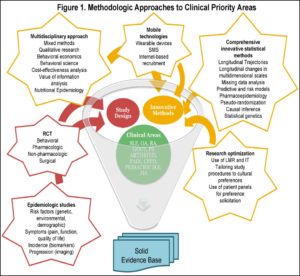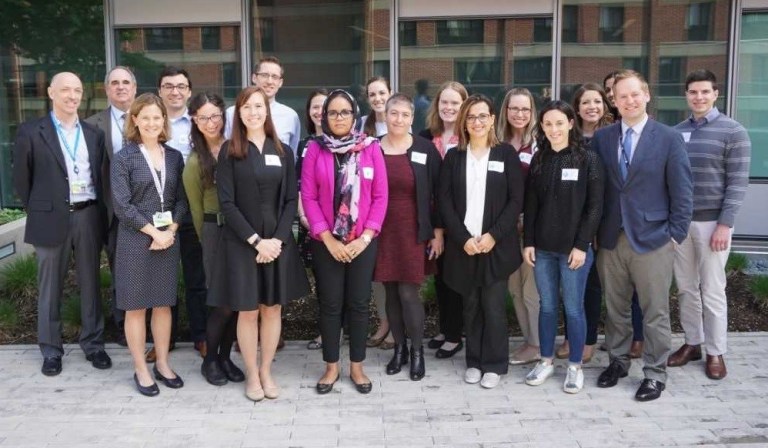Bioinformatics Core Supports Investigators Who Seek to Use Big Data

Bioinformatics methods are increasingly applied in clinical research studies to approach research questions from novel perspectives. For example, natural language processing (NLP) enables use of information previously embedded in narrative clinical notes. Leveraging experience from the past decade in developing and applying bioinformatics tools for clinical studies, the VERITY Bioinformatics Resource Core supports investigators who seek to apply these tools to their research in rheumatic and musculoskeletal disease.



 The modification of the androgen axis plays a central role in men’s health, from maintaining vitality to controlling prostate cancer. Trying to balance the side effects and benefits of altering this axis is a fertile area of research.
The modification of the androgen axis plays a central role in men’s health, from maintaining vitality to controlling prostate cancer. Trying to balance the side effects and benefits of altering this axis is a fertile area of research. For 26 years, the Center for Pancreatic Disease at Brigham and Women’s Hospital has been at the forefront of providing care for patients with pancreatic diseases. The Center’s three medical pancreatologists, who include
For 26 years, the Center for Pancreatic Disease at Brigham and Women’s Hospital has been at the forefront of providing care for patients with pancreatic diseases. The Center’s three medical pancreatologists, who include  A treatment option that has shown to improve clinical outcomes and prognosis in patients with peritoneal metastasis is cytoreductive surgery with hyperthermic intraperitoneal chemotherapy (HIPEC). While HIPEC can improve disease-free survival in many patients, it’s a major operation.
A treatment option that has shown to improve clinical outcomes and prognosis in patients with peritoneal metastasis is cytoreductive surgery with hyperthermic intraperitoneal chemotherapy (HIPEC). While HIPEC can improve disease-free survival in many patients, it’s a major operation. In the 1960s, Brigham and Women’s Hospital pioneered the development and commercialization of dialysis. Once again, the Brigham is on the forefront of renal replacement therapy (RRT) through a new project spearheaded by the Kidney Health Initiative (KHI), a public-private partnership between the
In the 1960s, Brigham and Women’s Hospital pioneered the development and commercialization of dialysis. Once again, the Brigham is on the forefront of renal replacement therapy (RRT) through a new project spearheaded by the Kidney Health Initiative (KHI), a public-private partnership between the 
 Preexisting mental illness and substance abuse disorders are common in patients being treated in intensive care units (ICUs), as is delirium. There is increasing appreciation for the impact of these conditions on overall health outcomes, length of hospital stay and mortality.
Preexisting mental illness and substance abuse disorders are common in patients being treated in intensive care units (ICUs), as is delirium. There is increasing appreciation for the impact of these conditions on overall health outcomes, length of hospital stay and mortality.